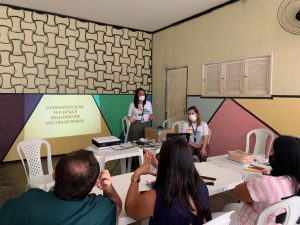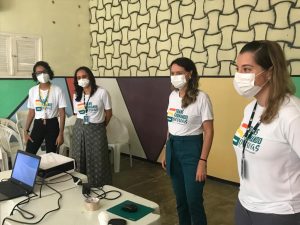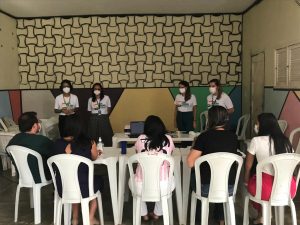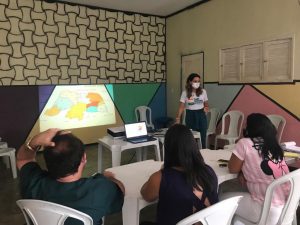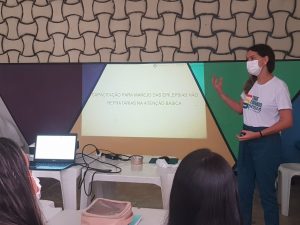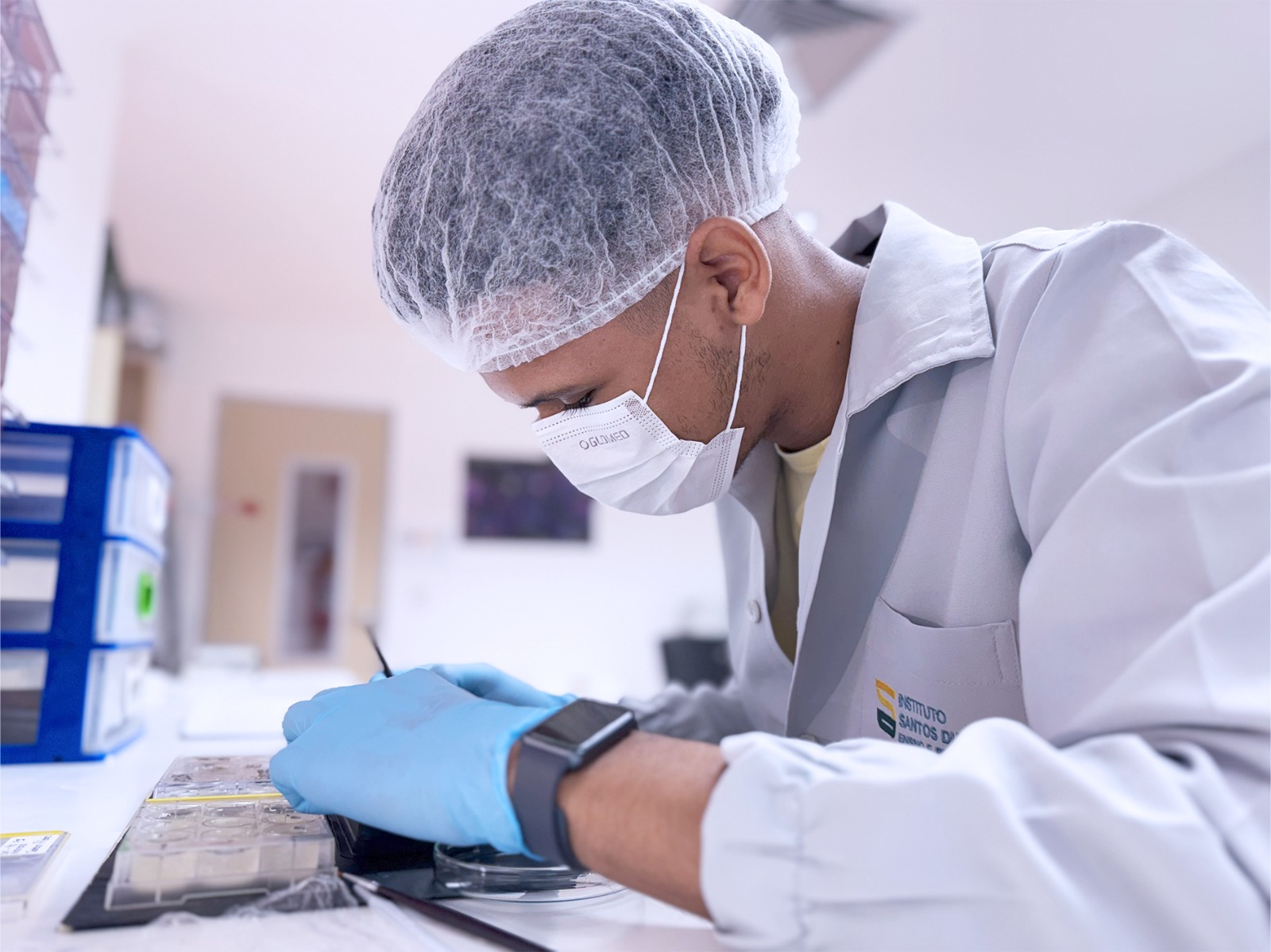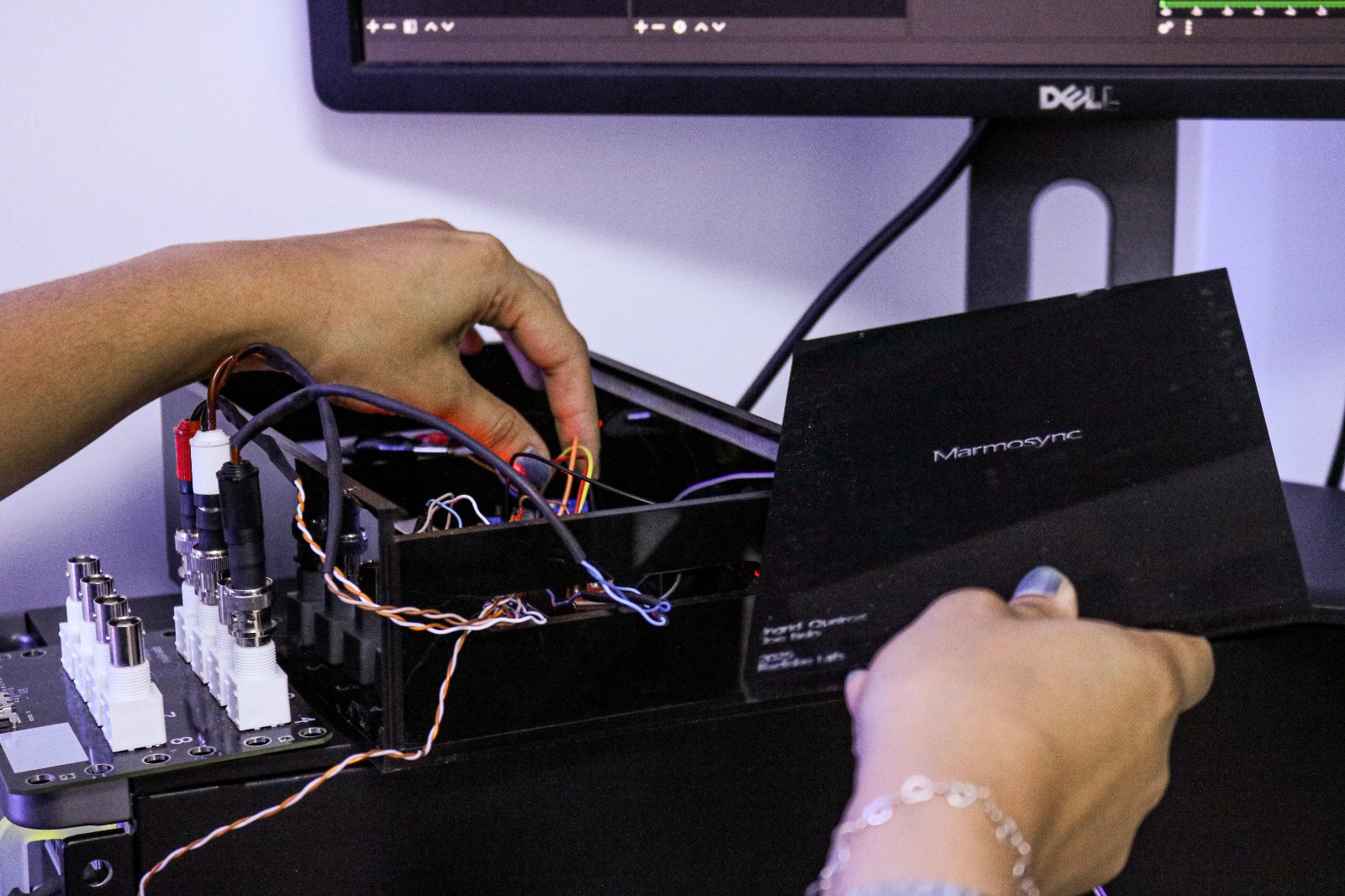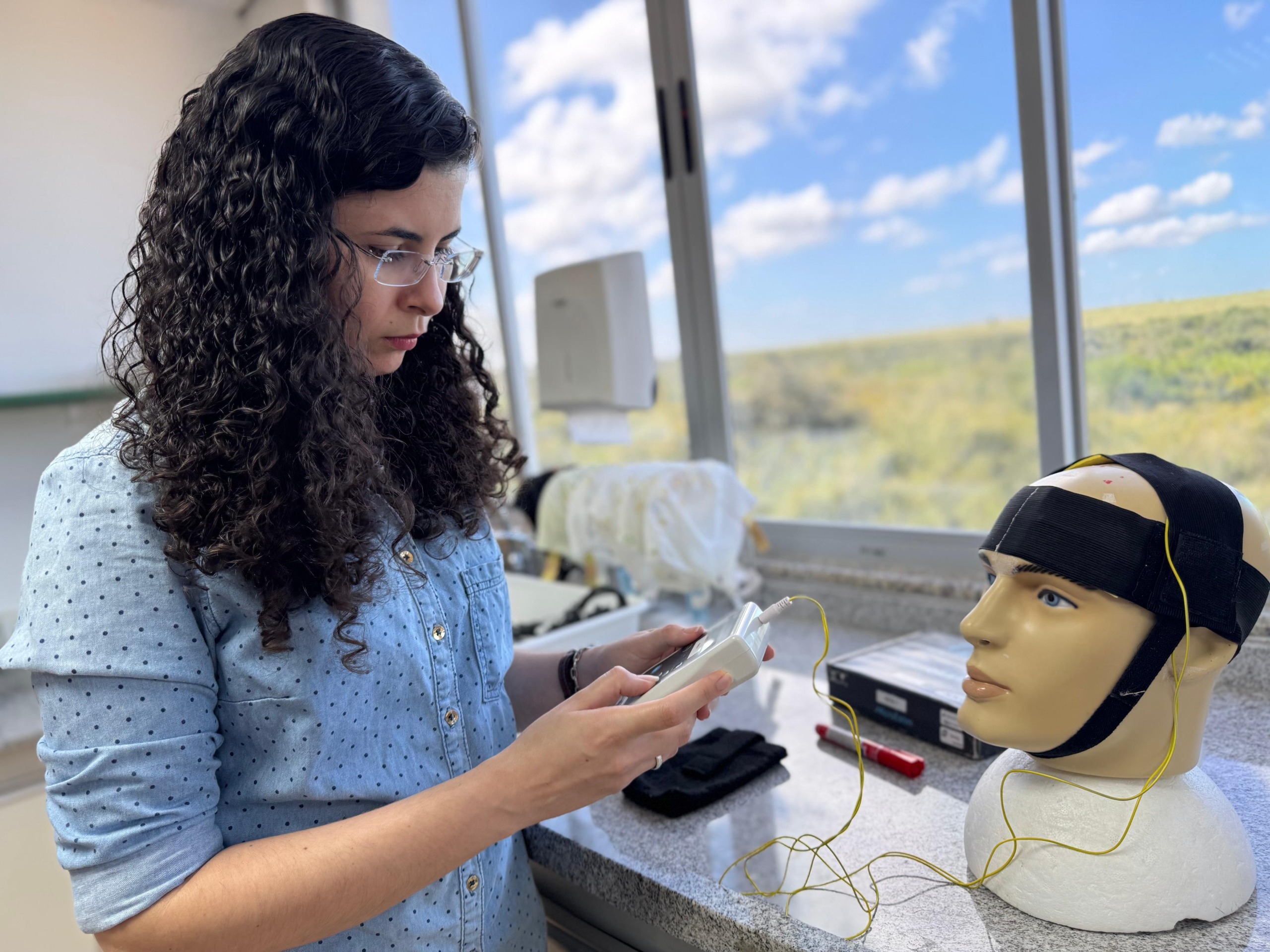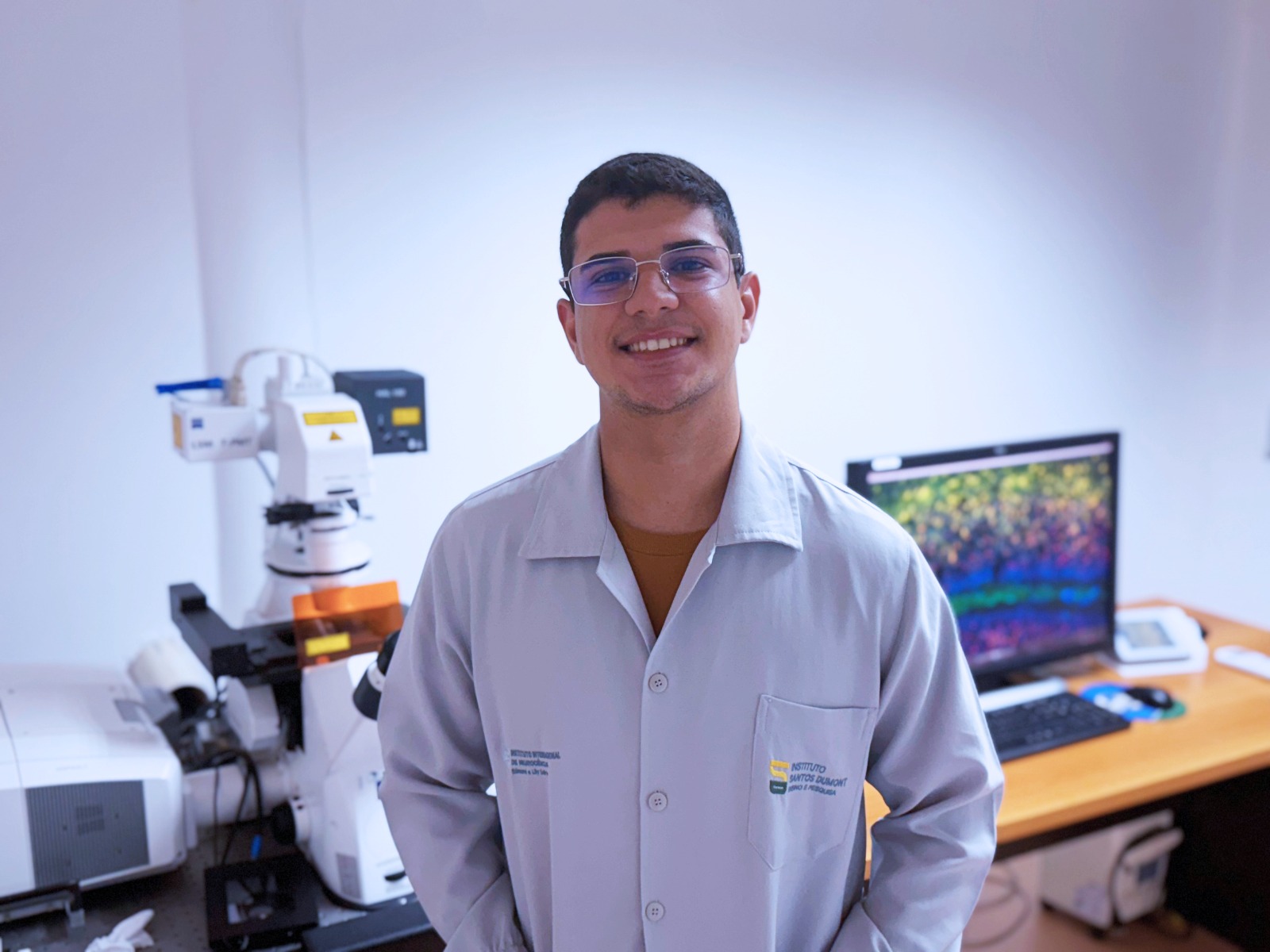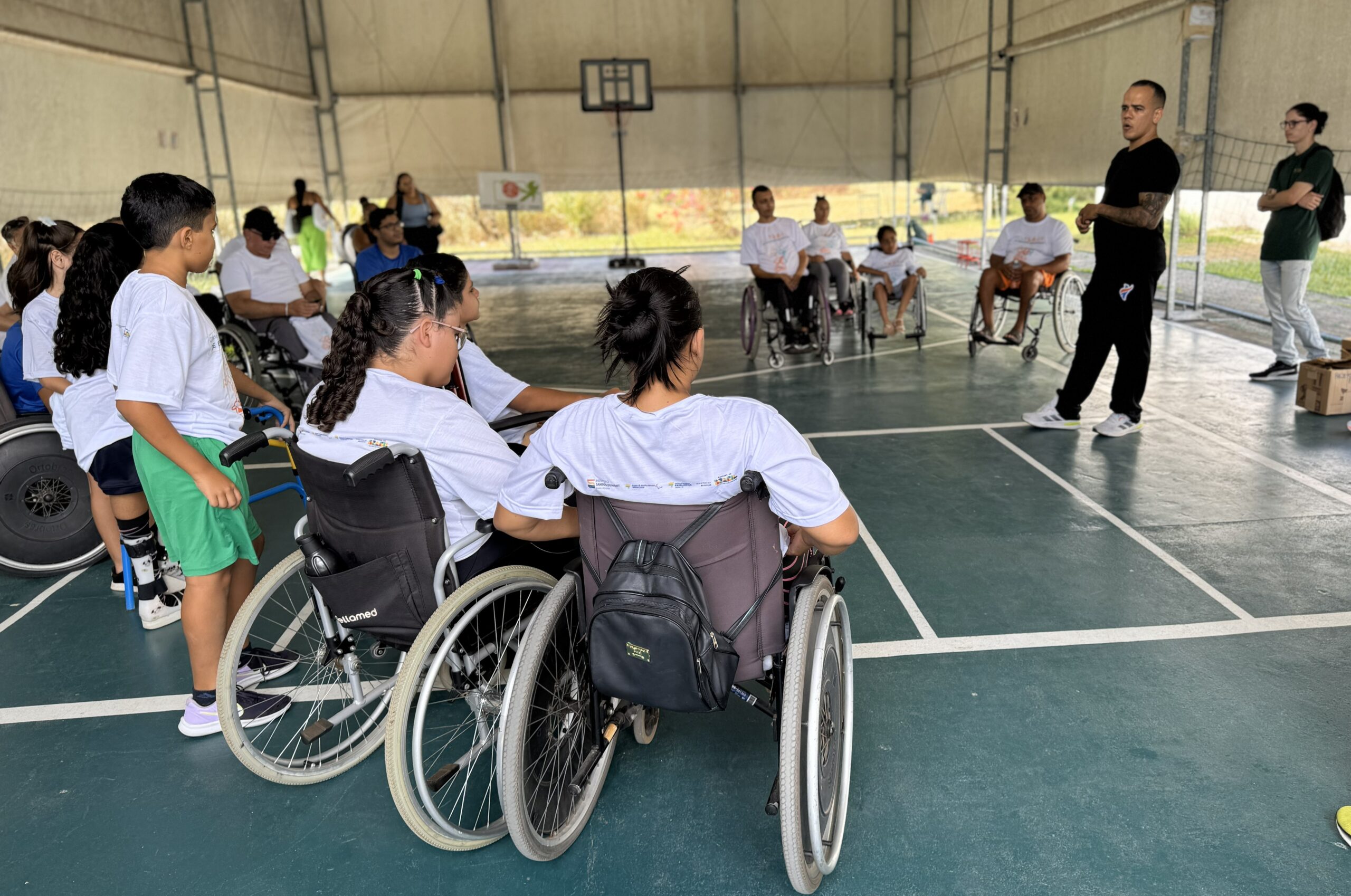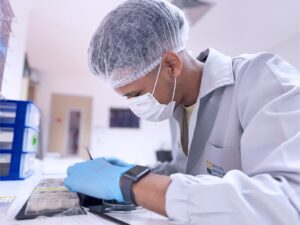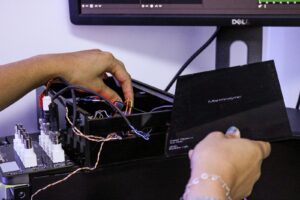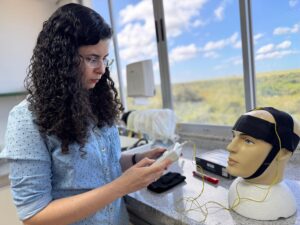Multidisciplinary preceptors from the Anita Garibaldi Health Education and Research Center, from the Santos Dumont Institute (ISD), carried out this Wednesday (09) a training activity on epilepsy for nursing teams working in the basic health network in the municipality of Extremoz /RN. The action is part of a project that aims to train primary care professionals so that they know how to carry out monitoring, diagnosis, possible referrals and provide all the necessary support to the demands of possible cases of epilepsy.
The training took place at the Fundação de Cultura Aldeia do Guajiru and was attended by six nursing professionals who work in Basic Health Units (UBS) in the urban and rural areas of Extremoz.
The Epilepsy clinic at the Anita Specialized Center for Hearing, Physical and Intellectual Rehabilitation (CER-III) is a reference in Rio Grande do Norte for assistance with drug-resistant epilepsies – epilepsies with seizures that are difficult to control with medication – and has identified deficiencies in the basic network health in relation to other cases. The first two training sessions on the topic took place in 2020 and were attended by professional nurses and doctors from the municipality of Macaíba/RN, which hosts the Institute. This year, the objective is to expand training, starting with the municipalities of the 7th health region of the state, which comprises the municipalities of Natal, Macaíba, Parnamirim, São Gonçalo do Amarante and Extremoz.
“It is a very important initiative because we expand the scope of our actions, learn about the demands that exist in that location, see the real needs beyond our service and bring knowledge about epilepsy, so that professionals know how to give all necessary assistance to patients who arrive with this demand”, explains the multidisciplinary neuropediatric preceptor, Celina Reis, one of the professionals who led the training.
Training
How to recognize a case of epilepsy? What signs can be detected during consultations? What questions to ask when suspicion arises? These are some of the questions answered by the ISD team during the training provided. The training is aimed at cases of controlled epilepsy, those that can be treated with medication.
The objective of the course, according to multidisciplinary neuropsychologist preceptor Joísa Araújo, is “to train primary health care professionals to care for and manage Epilepsy and understand the referral flow of people with Drug-Resistant Epilepsy, the most serious cases”, she said.
The training was provided, in addition to Joísa and Celina, by the multi-professional nutritionist preceptor, Luciana Câmara, the multi-professional neurologist preceptor, Nicelle Morais and the Psychology Resident of the Multi-professional Residency in Health Care for People with Disabilities, Sarah Oliveira.
Clinic
The epilepsy clinic at the Specialized Rehabilitation Center (CER-lll) at Anita/ISD is a service for the reception, care and specialized multidisciplinary treatment of severe epilepsies, known as drug-resistant.
The Multidisciplinary Service Specialized in Pharmacoresistant Epilepsy (SEMEP), has a team of professionals from Neurosurgery, Pediatric and Adult Neurology, Social Work, Psychology, Physiotherapy, Speech Therapy, Occupational Therapy and Nutrition specialized in the Ketogenic Diet.
What is epilepsy?
Epilepsy is considered one of the most common neurological diseases that exist and, according to the World Health Organization (WHO), affects around 50 million people worldwide.
The disease can cause convulsions or non-convulsive crises, including “absence” crises – in which the person seems to “turn off” for a few moments, and can then resume what they were doing – and, for example, sensations such as distortions of perception, uncontrolled movements of a part of the body or sudden fear, as described by the Brazilian Epilepsy League.
“Non-convulsive seizures”, according to the Ministry of Health, “are often difficult to diagnose, except when they evolve into a seizure”. Epilepsy, according to MS, can be prevented and controlled in up to 70% of patients.
Text: Kamila Tuenia – Journalism Intern / Ascom – ISD
Communication Office
comunicacao@isd.org.br
(84) 99416-1880
Santos Dumont Institute (ISD)
It is a Social Organization linked to the Ministry of Education (MEC) and includes the Edmond and Lily Safra International Institute of Neurosciences and the Anita Garibaldi Health Education and Research Center, both in Macaíba. ISD's mission is to promote education for life, forming citizens through integrated teaching, research and extension actions, in addition to contributing to a fairer and more humane transformation of Brazilian social reality.




